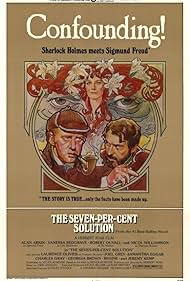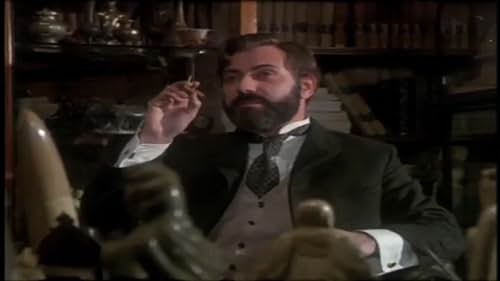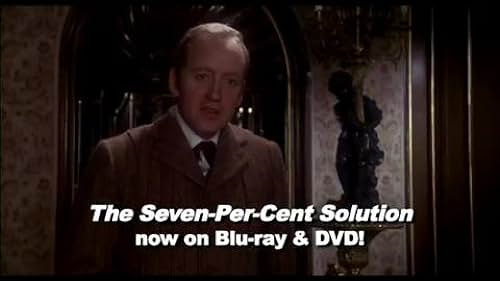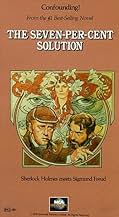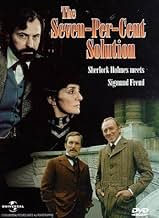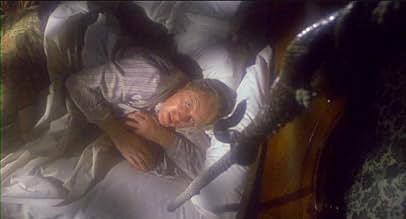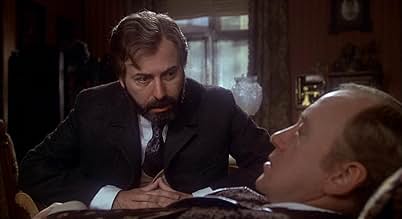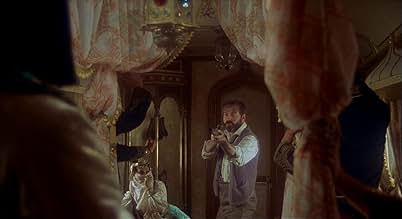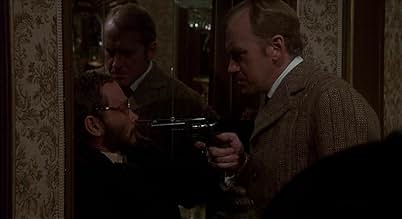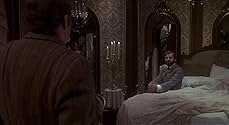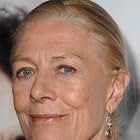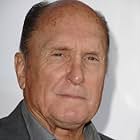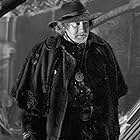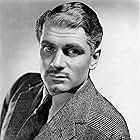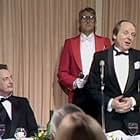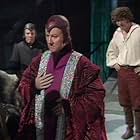Per trattare le illusioni indotte dalla cocaina del suo amico, Watson attira Sherlock Holmes da Sigmund Freud.Per trattare le illusioni indotte dalla cocaina del suo amico, Watson attira Sherlock Holmes da Sigmund Freud.Per trattare le illusioni indotte dalla cocaina del suo amico, Watson attira Sherlock Holmes da Sigmund Freud.
- Candidato a 2 Oscar
- 1 vittoria e 5 candidature totali
Trama
Lo sapevi?
- QuizThe title of the movie refers to the drug Sherlock Holmes is abusing. He injects himself with a solution of seven percent cocaine and ninety-three percent saline solution.
- BlooperWhen Holmes, Watson, and Freud are attacked by rampaging horses, the trainer can be seen running behind the horses in long shots.
- Citazioni
Sigmund Freud: Who am I that your friends should wish us to meet?
Sherlock Holmes: Beyond the fact that you are a brilliant Jewish physician who was born in Hungary and studied for a while in Paris, and that certain radical theories of yours have alienated the respectable medical community so that you have severed your connections with various hospitals and branches of the medical fraternity, beyond this I can deduce little. You're married, with a child of... five. You enjoy Shakespeare and possess a sense of honor.
- Curiosità sui creditiIn the opening titles, there are footnotes concerning many of the characters.
- Versioni alternativeIn some airings on television, the "Madame's Song" (aka "I Never Do Anything Twice") is cut.
The movie takes the liberty of assuming that all of Dr. Watson's accounts of Sherlock Holmes are true, except for one. That would be "The Final Problem", in which the great detective supposedly dies at the hands of his arch-enemy Professor Moriarty. The movie suggests that this story is merely a cover up for a period in time in which Holmes was getting help with his cocaine addiction from none other than famous psychiatrist Sigmund Freud.
The settings and characters ring true to both Doyle's mysteries and the Sydney Paget illustrations that accompanied them. Sherlock Holmes' deerstalker and cloak, though never mentioned by Doyle, look more like Paget's illustrations than ever before, more rugged than in most film interpretations. American actor Robet Duvall, despite sometimes struggling with the British accent, portrays Watson as an intellectually and physically fit comrade for Holmes, not a bumbler. Laurence Olivier's Prof. Moriarty matches the vision of Doyle and Paget rather than the cliché mustache twirler of other movies. Only now, Moriarty isn't really a criminal mastermind. He's Holmes' childhood math tutor.
Alan Arkin depicts Freud as a man of intelligence, insight, and above all, honor.
The inclusion of lesser known characters like Mycroft Holmes and Toby is a plus. There are also references, both direct and sly, to canonical Holmes stories.
While Nicol Williamson's performance as Sherlock Holmes lacks the vigor and spark of Basil Rathbone or Christopher Plummer, Williamson succeeds in showing Holmes as a troubled individual rather than a god. The movie mixes drama, subtle humor, mystery, and even action, finally showing Holmes as the capable fighter he was in the canon. The end of the film strays from the books in order to explore the uncharted territory of Holmes' childhood, providing a deeply moving climax.
This may come truer to Sir Arthur's original vision than any other pastiche written for film so far, largely thanks to the efforts of writer/director Nicholas Meyer. It's obvious in every scene that Meyer has a great love for the writings of Arthur Conan Doyle.
- SylvesterFox007
- 9 lug 2005
- Permalink
I più visti
- How long is The Seven-Per-Cent Solution?Powered by Alexa
Dettagli
- Data di uscita
- Paesi di origine
- Lingue
- Celebre anche come
- El caso final
- Luoghi delle riprese
- Aziende produttrici
- Vedi altri crediti dell’azienda su IMDbPro
Botteghino
- Budget
- 5.000.000 USD (previsto)
Contribuisci a questa pagina

